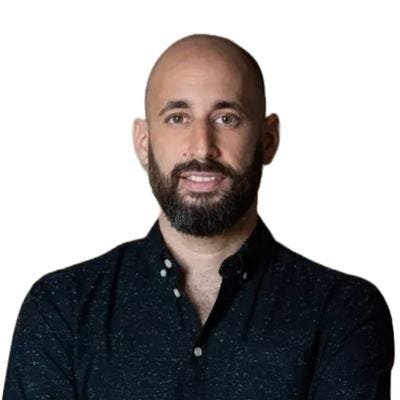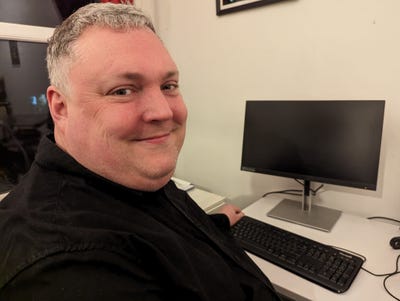
Breaking cybersecurity news, news analysis, commentary, and other content from around the world, with an initial focus on the Middle East & Africa and the Asia Pacific
Q&A: The Outlook for Israeli Cyber Startups, As War Clouds GatherQ&A: The Outlook for Israeli Cyber Startups, As War Clouds Gather
Amid the burgeoning war, Israel's tech sector is focused on resilience. Ofer Schreiber, senior partner at YL Ventures, weighs in on the conflict, funding for cybersecurity startups, overblown valuations, and what the future holds.
October 19, 2023

Israel has a strong start-up legacy of incubating cybersecurity vendors who have gone on to expand to global success. Investors have invested billions of dollars into these companies, and Tel Aviv last year was named one of the world's best technology ecosystems.
One of the more active investment firms in the region is YL Ventures, which funds early-stage Israeli cybersecurity start-ups. Its senior partner and head of the Israeli office is Ofer Schreiber, who oversees the firm's investment processes and due diligence, portfolio companies management, and value-add initiatives — and he has seen companies emerge from some challenging times recent years.
Dark Reading sat down with Schreiber to discuss the current state of investment in Israel's tech community, and how the events of the Israel-Hamas war could affect the start-up sector's outlook.
Dark Reading: How has the Israeli cybersecurity market been in the past few years, and are new companies still emerging?
Ofer Schreiber: Cybersecurity innovation coming out of Israel is not stopping, but I think it's much harder today to build a new cybersecurity company compared to the last few years. One of the positive

Ofer Schreiber, senior partner at YL Ventures. Source: YL Ventures
things here is that from our perspective, the amount of entrepreneurial theory in Tel Aviv and Israel who are passionate about starting a new company to disrupt some of the industry's categories is not decreasing. There are great teams working on interesting ideas and the entrepreneurial spirit is as strong as in the past few years, that's for sure.
DR: What do you think the increasing challenges have been in the past few years?
OS: The environment has changed, and it's harder to raise capital with good valuations compared to the past couple of years. You still see quite a lot of security startups that found themselves with very high valuations, and raised a lot of capital, but with not a lot of market traction to show for it.
We will start seeing more and more M&A activity during the next six or 12 months. The consolidation wave has already begun, and there's increased pressure on the entire industry from customers who are more interested in consolidation; they're interested in working with fewer vendors. They're expecting their big players to have wider suite of products and services, but [users] are drawn more to young and innovative startups, so that adds more pressure on younger vendors.
DR: How is the current Israel-Hamas conflict affecting the technology scene?
OS: What is certain is that Israel is probably experiencing its biggest crisis in its short history. There is an analogy that we use about the Israeli tech ecosystem and its resilience, agility, and innovation. You can just see it across the entire country: we have been hit hard, but we are coping and we are regrouping.
There are so many initiatives from both the government and private sectors to support civilians that got hurt, and support the troops. The tech ecosystem is no different, everybody's doing something. A lot of the entrepreneurs and employees of our portfolio companies are in reserve duties in the intelligence core, and the ones who have not been recruited are spending a lot of time in private civilian initiatives. Everybody's using their skills.
There's always this cliche about the Israeli people, that we're constantly fighting with each other. But whenever there's an adversary, or whenever there is a crisis, we all put all our differences aside and we unite.
DR: What about from an investment point of view, does the conflict change the way businesses operate?
OS: It would be foolish to say that it has no effect, just for the basic fact that a lot of people are [busy] in reserve duty or other civilian initiatives. If you think about Israeli startups, some of them have non-Israeli operations as well. Many are actually headquartered in the US, or they have departments outside of Israel, so those departments are almost unaffected.
For almost 100% of Israeli tech companies, they are definitely affected to some degree. What I can stay for certain, as with any other crisis that has happened in Israel, is that I think it's a very short-term impact on our industry. Like with every other bad thing that happened in Israel, we got hurt, but we show a lot of resilience, and I'm pretty sure that like any other negative event that happened in Israel, we will come out of it even stronger and more united as a country, and as a business ecosystem.
If I try to be an optimist, I'll say that it will have even a positive impact as we will get out of it stronger and more resourceful, and more united.
DR: Back to the valuation conversation — Do you see a lot of companies who literally launched with the view to being acquired within three years?
OS: I don't think that's the original intent of the vast majority of entrepreneurs. Entrepreneurs are optimistic in nature, that's why they're entrepreneurs, so they always have to be extremely visionary, but you have to be quite pragmatic at one point [in] the journey.
Most entrepreneurs aim to become a category leader, in whatever category they choose, and to build a sustainable business. Most of them will not succeed in doing that because that's just the reality of the start-up world in general, and definitely in cybersecurity, which is just a very big market with a lot of problems to be solved.
DR: Was there more investment after the COVID-19 pandemic started to slow down?
OS: There were companies that raised ridiculous amounts of capital with ridiculous valuations, and investors who paid massive premiums just to invest and be a shareholder of a hot startup, and this basically pushed the valuations up.
I used to say that we were partying for two years, and now we're in the hangover stage. During 2021, the party was massive, and now we don't feel so well. So we have a headache but it will go away, it's a temporary situation. We need to realize that.
If you focused on building sustainable companies [with] sustainable growth, and focused on solving real problems and growing your area responsibly, you'll be fine.
Read more about:
DR Global Middle East & AfricaAbout the Author
You May Also Like
Securing the Remote Workforce
Feb 20, 2025Emerging Technologies and Their Impact on CISO Strategies
Feb 25, 2025How CISOs Navigate the Regulatory and Compliance Maze
Feb 26, 2025Where Does Outsourcing Make Sense for Your Organization?
Feb 27, 2025Shift Left: Integrating Security into the Software Development Lifecycle
Mar 5, 2025




_vska_Alamy_.jpg?width=700&auto=webp&quality=80&disable=upscale)